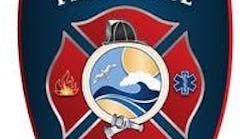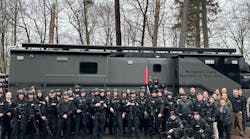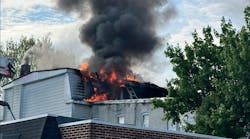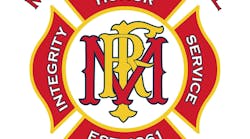The legendary New York Fire Insurance Patrol – the nation’s first and last privately financed salvage brigade – is headed for extinction after 171 years of protecting property from smoke and water damage caused by fires and firefighting operations. The New York Board of Fire Underwriters, which supervises the patrol for the insurance companies who pay for its support, has resolved to close the three remaining stations by the end of this year, if not sooner. A last-ditch effort is underway to save the Patrol, but the outlook is grim.
Organized in 1835, the New York Fire Patrol became the model for all that followed. By the early 20th century, 23 cities had insurance-sponsored salvage corps that responded to fires along with the fire department’s engine and truck companies. In New York, Chicago and other cities, the patrolmen could be distinguished by their red helmets as they plunged into the heat and smoke to spread waterproof salvage covers and recover valuable items. They never hesitated to help make rescues when people were trapped; they earned their share of citations and the respect of the firefighters they worked with.
Fire patrolmen suffered the same injuries as other firefighters and 32 New York patrolmen died in the line of duty, including Keith Roma of Fire Patrol 2, who was killed on 9/11 while leading people from the upper floors of the World Trade Center. There are no precise figures for the amount of property the Fire Patrol saves each year, but it’s estimated at well over $100 million. It costs $8.5 million per year to operate the three stations and pay the salaries of 100 patrolmen and officers; the insurance companies fund the patrol with a 2% surcharge on policy premiums.
So why shut it down? The answer: greed, incompetence and indifference. In fact, it’s a miracle that the New York Fire Patrol has lasted this long. In other cities, local underwriter boards began eliminating companies and disbanding their salvage corps in the Great Depression of the 1930s. By the 1960s, all that remained was three New York companies – two in Manhattan and one in Brooklyn. (At its peak, the New York Fire Patrol had 10 stations.) James Nunez, president of Fire Patrol Local I-26 of the International Association of Fire Fighters, is fighting to save the patrol and the jobs of his members. Nunez argues that New York with its high-rise buildings needs the salvage units more than any other city. “All you have to do is look at the valuables that are at risk in these buildings,†he points out.
Harold Schaitberger, general president of the IAFF, accuses the Board of Fire Underwriters of “incompetent management†and “backroom decisions.†A report done by a consulting firm hired by the Underwriters describes the board as “…caught in a veritable time warp wherein its governance, management and operations have not undergone any modernization in decades.†Greg Serio, a lawyer with the consulting firm that did the report, has been appointed “interim chairman†of the Underwriters Board. A former New York State Insurance Commissioner (and a volunteer fire chief), Serio says: “The Patrol’s management did not keep up with the times…the insurance industry is not the one to modernize it.â€
The insurance industry is angry with the Board of Underwriters for its mismanagement of the patrol, but they will not do anything to save it. The board has passed a resolution to “no longer sustain†the patrol and pledged to shut it down by the end of the year, when the current budget runs out. Nunez and the local union are appealing to the board to reverse its decision; meanwhile, Serio is exploring other ways of keeping the patrol alive. As this is written, the three patrol companies are still responding to alarms, but that could end any day.
Experience has shown that in every city that had a patrol, no fire department picked up the salvage work for any length of time after the insurance companies disbanded their units. Sadly, salvage has become a lost skill in today’s fire service. Most fire departments don’t have enough firefighters to properly staff their engines and trucks, much less assign crews to spread salvage covers to “beat the water†in the early stages of a working fire.
Forty-seven years ago, as a reporter for the Chicago American newspaper, we fought a losing battle trying to save the Chicago Fire Insurance Patrol. When I naively asked an underwriter official what would happen if fire losses increased without the patrol’s salvage work, he bluntly replied: “We’ll raise the premium rates.†That’s when I knew we were licked; the Chicago patrol was disbanded a few weeks later, on June 29, 1959.
I hope they can do better in New York, but it sounds like they’re dealing with the same kind of cold-blooded people. The patrolmen desperately need support from the business community, civic groups, the news media and political leaders. If the last Fire Insurance Patrol goes down, the big losers will be the citizens of New York.
Hal Bruno, a Firehouse® contributing editor, retired as political director for ABC News in Washington and served almost 40 years as a volunteer firefighter. He is a director of the Chevy Chase, MD, Fire Department and chairman of the National Fallen Firefighters Foundation.





